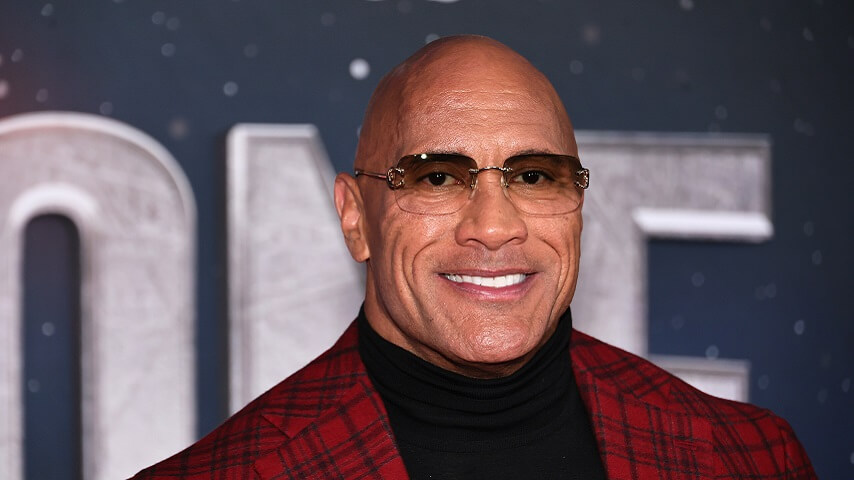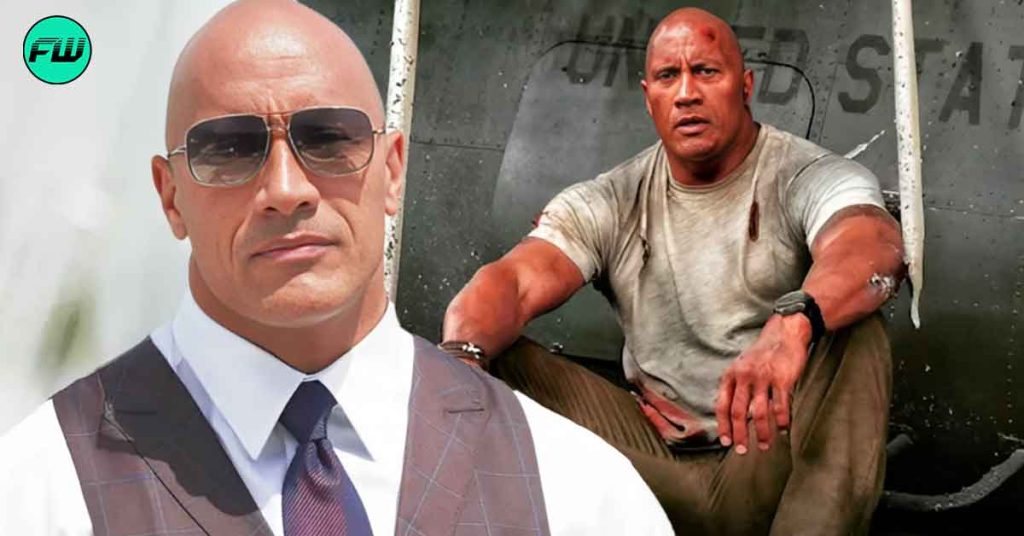
Here's ads banner inside a post
Dwayne Johnson Urges Fans to Shake Up the Moviegoing Experience – In a Bold New Way!
In a world where entertainment consumption is rapidly evolving, one of Hollywood’s biggest stars, Dwayne “The Rock” Johnson, is making a bold statement: it’s time to shake up the moviegoing experience. Known for his towering physique, charismatic screen presence, and relentless work ethic, Johnson is now channeling his energy into revolutionizing how we experience cinema. In a recent series of interviews and social media posts, the actor-turned-producer has put forth a challenge to fans, urging them to embrace a new way of engaging with movies that breaks free from traditional viewing habits. But what does this “new way” entail, and why is it so important for the future of film? Let’s take a closer look.
A New Vision for Moviegoing: Breaking the Mold
In the digital age, the traditional movie theater experience has become somewhat predictable. Whether it’s the oversized popcorn, the dimmed lights, or the familiar trailers that play before the film, moviegoers are accustomed to a ritualistic routine. While this tradition has been cherished for decades, Dwayne Johnson believes it’s time for a change. He envisions a moviegoing experience that transcends passive viewing and encourages active participation, turning audiences into more than just spectators.
Here's ads banner inside a post
The star of Fast & Furious, Jumanji, and Black Adam has long been an advocate for innovation, especially in the world of entertainment. He recognizes the potential of technology and new formats to transform how we consume media. From the rise of streaming platforms to immersive VR (Virtual Reality) and AR (Augmented Reality) experiences, the landscape of entertainment is rapidly shifting. Yet, in the midst of these technological advances, traditional movie theaters have struggled to adapt, facing challenges like declining attendance and competition from at-home streaming services.

Johnson’s vision is about more than just upgrading theater seats or offering premium screen formats like IMAX or 3D. Instead, he advocates for a complete rethinking of what it means to watch a movie in a theater. He believes that the moviegoing experience should be an event — one that brings people together in a new, more interactive way. “We need to make the movie theater experience feel more like a celebration. Let’s bring the audience closer to the action and let them be part of the storytelling,” Johnson said in one of his recent interviews.
Here's ads banner inside a post
The Power of Audience Engagement
At the core of Johnson’s message is the idea of audience engagement. For decades, moviegoers have sat in silence, observing characters and plots unfold on the screen. While this approach has worked for years, the rise of interactive media — from video games to immersive theater — has created a new expectation among audiences: they want to be more involved. This shift in consumer behavior, particularly among younger generations, has led to the rise of experiences like interactive theater, escape rooms, and even immersive art installations.
Johnson sees this as an opportunity for the film industry to embrace a more dynamic relationship with its audiences. He advocates for incorporating elements of interactivity and surprise into the traditional movie theater format. Imagine a movie where the audience can influence the storyline in real-time, or where fans can choose alternate plot twists during screenings, much like the Bandersnatch episode of Black Mirror. This type of cinematic experience would transform passive viewers into active participants, allowing them to shape the narrative in ways that are currently reserved for video games or interactive streaming specials.
Additionally, Johnson highlights the importance of social interaction within movie theaters. Rather than the solitary experience of watching a film alone or with a group of friends, he envisions theaters where fans can engage with each other, discuss plot points, and even take part in live audience-driven events. Think about Q&A sessions with filmmakers, actors, and directors, or even live tweets or chats that allow audiences to react in real-time as the movie unfolds. The goal is to create a more communal, shared experience where fans don’t just watch — they engage and contribute to the moviegoing event.
Tech Innovation and Moviegoing: The Future of Immersive Entertainment
Technology plays a huge role in Johnson’s vision for the future of moviegoing. As a proponent of the latest tech trends, he sees the potential for Virtual Reality (VR), Augmented Reality (AR), and even Artificial Intelligence (AI) to enhance the cinematic experience. VR, for instance, could transport viewers into the very world of the movie, allowing them to feel like they are part of the action. Imagine stepping into a Fast & Furious car chase or walking through a Jumanji jungle — all while the narrative unfolds around you.
AR, on the other hand, could blur the lines between the movie world and the real world. Johnson envisions AR technology that could be integrated into movie theaters, allowing viewers to interact with virtual elements projected onto the physical space around them. This could be something as simple as augmented movie posters that come to life or complex interactive scenes where the audience is prompted to make decisions that affect the unfolding narrative.
While these technologies are still in their infancy, Johnson believes that movie studios should start experimenting with them now. He has already taken steps to incorporate cutting-edge tech into his own production company, Seven Bucks Productions, and has teased future projects that might include elements of AR or VR. “The future of movies isn’t just about what happens on the screen. It’s about what happens around you,” Johnson stated. “Imagine a movie where your seat moves, your environment changes, and the film adapts to how you’re feeling or what you’re doing. That’s the kind of immersive experience we should be aiming for.”
The Importance of Accessibility and Inclusivity
Another key component of Johnson’s new vision for moviegoing is accessibility and inclusivity. As someone who has always championed diverse voices in Hollywood, he stresses the importance of ensuring that these new moviegoing experiences are accessible to all. “Technology should make the moviegoing experience more inclusive, not more exclusive,” he explains. “We need to ensure that every audience, regardless of their background or abilities, can enjoy these new experiences.”
Johnson emphasizes the need for theaters to incorporate accessible features such as closed captions, audio descriptions, and sensory-friendly screenings for individuals with disabilities. This inclusivity should extend beyond physical accessibility to also include a wider range of stories, characters, and perspectives. He believes that diverse narratives should be at the forefront of the moviegoing experience, as they allow audiences to connect with the film on a deeper, more personal level.
Moreover, Johnson recognizes the potential of global audiences in transforming the moviegoing experience. With the rise of streaming platforms like Netflix and Disney+, international markets have become essential to the success of Hollywood films. Johnson has already been involved in several projects with international appeal, including Red Notice and the upcoming Jungle Cruise franchise. He sees the global fanbase as a driving force in the future of moviegoing, encouraging filmmakers to think beyond their borders and create stories that resonate with diverse audiences worldwide.

What’s Next for Dwayne Johnson’s Bold Vision?
While Dwayne Johnson’s call for change is inspiring, it’s clear that implementing these ideas will require collaboration across the entertainment industry. From movie studios to tech innovators, the vision for a more interactive and immersive moviegoing experience will need significant investment and development. However, given Johnson’s track record of success and his ability to rally fans and industry professionals alike, there’s no doubt that his bold ideas will continue to shape the future of film.
In the coming years, we may see the rise of new, experimental theaters designed to accommodate these next-gen experiences. Moviegoers might attend films that are streamed live with audience participation or take part in immersive movie nights where they become part of the story. While we are still in the early stages of this shift, Johnson’s vision offers a glimpse of what’s possible — a moviegoing experience that is far more dynamic, inclusive, and engaging than anything we’ve ever seen before.
As Dwayne Johnson himself puts it: “The future of movies isn’t just about entertainment. It’s about bringing people together, creating unforgettable moments, and making sure that every person, no matter where they are in the world, can experience the magic of cinema in a whole new way.”
With this bold call to action, Johnson has not only challenged moviegoers to rethink their viewing habits, but he has also ignited a conversation that could very well define the next chapter in the evolution of cinema. So, next time you step into a theater, keep your eyes open — the future of movies might be unfolding right before your very eyes.

